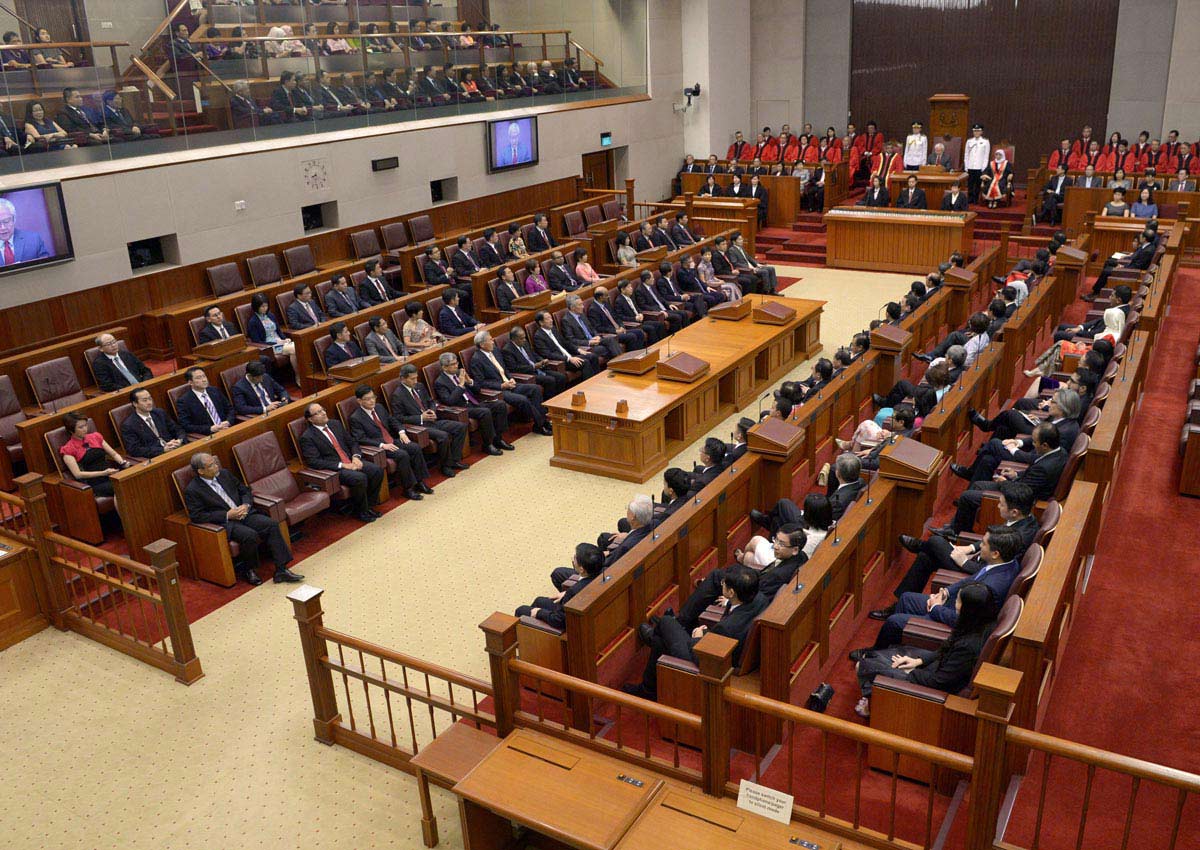Prospect of a veto alone has lessened the temptation for political parties to promise the world during elections.
The elected president’s custodial powers over the national reserves have influenced Singapore politics for the better, even if the veto over the Government’s spending proposals has never been exercised, Prime Minister Lee Hsien Loong said.
“The prospect of a veto alone has lessened the temptation for political parties to promise the world to voters in general elections,” he said, adding that he believed it was an important reason why the opposition parties have been cautious with their spending proposals.
“Without the second key, I am sure some opposition parties would have gone to town many elections ago. The People’s Action Party Government would have come under pressure to match their generosity, and might well have found it difficult to hold the line,” he said.
Mr Lee was speaking on the importance of the elected presidency as a safeguard in the political system, during the second day of debate in Parliament on proposed constitutional changes to the highest office of the land.
He reiterated the lessons from Australia that Deputy Prime Minister Teo Chee Hean had raised on Monday. During the boom years of its commodities, the Australian government spent A$18 out of every A$19 it received in extra revenue.
When the boom ended, it went into deficit and had to make painful spending cuts.
“Singapore is not in such a position and for that, some credit must go to the system of the elected president with veto powers over reserves,” Mr Lee said.
Ultimately, the goal is to design a system with the right balance between a decisive government and adequate stabilisers, he added.
Without stabilisers, there will be serious consequences if anything goes wrong.
But should the stabilisers become too strong, gridlock would set in.
Singapore started very close to the first extreme, with “a unicameral, single Parliament, untrammelled”, Mr Lee said. So, the elected presidency was introduced to protect the reserves and key public service appointments.
“This is not a fundamental shift from our system of parliamentary democracy, but it is an important one, because every system needs political stabilisers,” he said.
Addressing arguments that the power to safeguard the reserves should be vested in Parliament, Mr Lee said it would create “a single point of failure” as everything would hinge on a single general election.
In countries with an Upper and a Lower House, polls are often held separately in different constituencies and the timing staggered so that “you are never risking everything on one throw of the electoral dice”.
But the elected presidency is not all smooth sailing either. A unique system, it is “very difficult to get right because the balance is delicate”, said Mr Lee.
As the president is elected by the people, he has a mandate. But the mandate is not to govern but to be used only to veto specific government actions.
Also, the 2011 presidential polls showed that issues outside the president’s constitutional role can be touted in a fierce contest.For instance, one candidate championed a $60 billion economic plan which he claimed would create jobs, while another pushed for greater recognition of national servicemen.
Still, Singapore should persevere with the elected presidency, Mr Lee said. “But for all these difficulties, I am convinced the elected president has been a plus for our system.”
Turning to overseas examples of political systems, he cited two countries on extreme ends in terms of checks and balances.
Britain has no written Constitution and comes closest to a Parliament with no constraints as it can theoretically make decisions as major as abolishing the monarchy through a simple majority, he said.
Even so, British courts have become a check on the government by making judgments that are, in effect, executive decisions.
This can be seen in the judicial response to government measures against terrorism.When it tried to deport convicted foreign terrorists, “the cases are endlessly litigated and the government finds itself impotent to act,” he said.
On the other hand, “the United States has elevated the separation of powers into a sacred doctrine” with three centres of power – Congress, the presidency, and the Supreme Court – constantly balancing one another.
“The tension is always there, and often results in gridlock. But the US accepts that, because their overriding priority and philosophy is to prevent an overbearing government.”
Mr Lee also noted that James Madison, one of the US founding fathers, wrote that: “If men were angels, no government would be necessary. If angels were to govern men, neither external nor internal controls on government would be necessary.
A dependence on the people is no doubt the primary control on the government; but experience has taught mankind the necessity of auxiliary precautions.”
Mr Lee said such a system would not work in Singapore.
“But we, too, need some ‘auxiliary precautions’, some stabiliser, besides the ‘primary control’, which is the fact that Parliament is elected by the people. And for us, that stabiliser is the elected president.”
ziliang@sph.com.sg

This article was first published on November 09, 2016.
Get a copy of The Straits Times or go to straitstimes.com for more stories.






